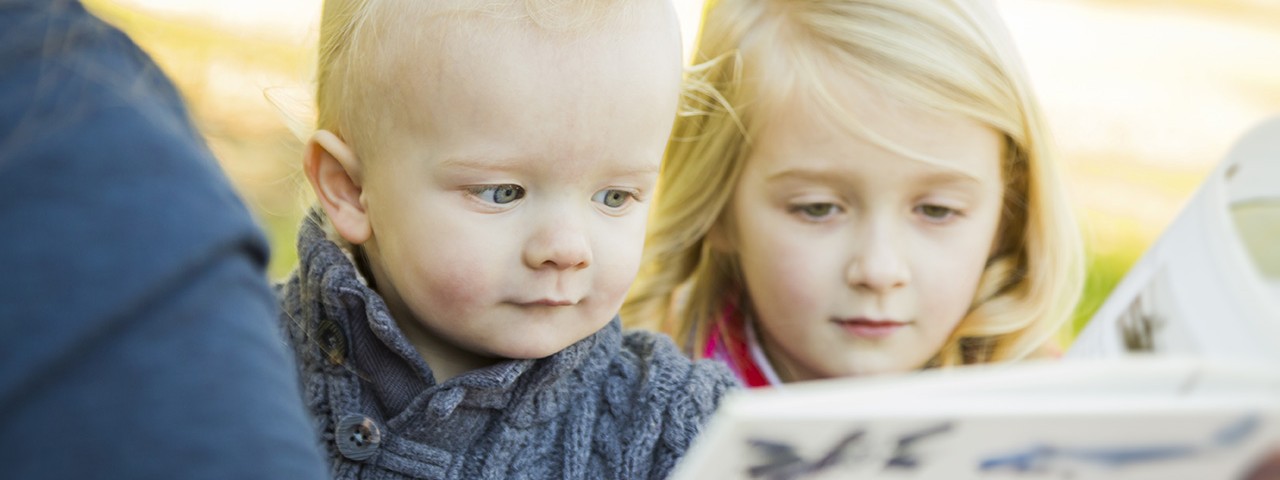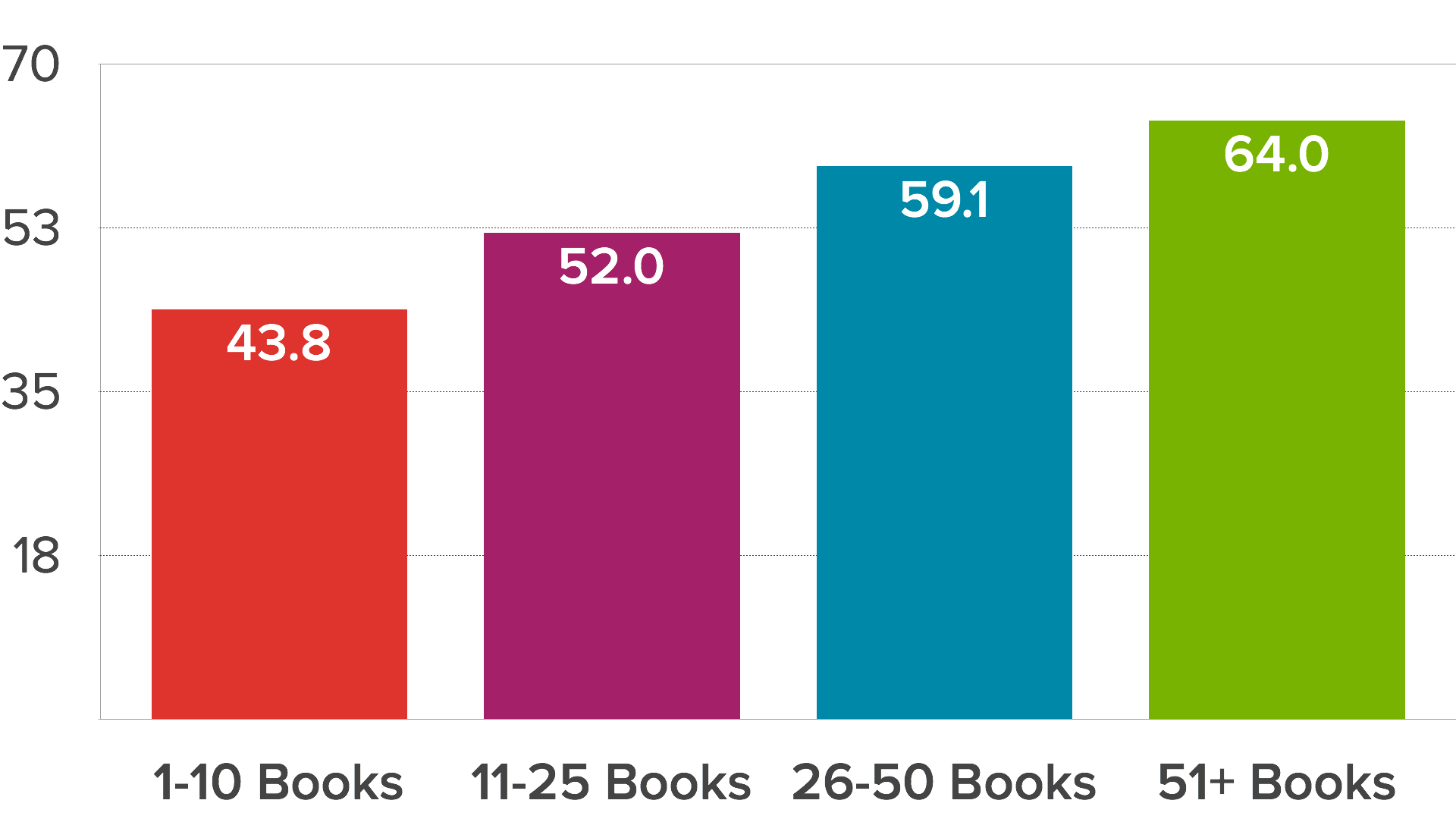More Books at Home Linked to Higher Reading Scores
- Tweet

Early exposure to reading helps to support a young child’s developing language and literacy skills. These skills, in turn, are important dimensions of school readiness and academic achievement.
When parents read with a child, they help to build that child’s love of reading. In the process, they are also helping to strengthen those parts of a child’s brain that support language and literacy skills, which become foundations for school readiness.
Parents of new kindergartners in Shelby County in 2011 and 2012 were asked about their family’s early reading habits. Parents were asked how many books for young children they had at home. If we compare parents’ responses with their children’s kindergarten readiness scores, the lessons are striking.
When families have more books at home, kindergartners arrive at school with higher early language scores. In other words, when families surround young children with books and reading, those children are more likely to reach kindergarten with stronger language skills.
Number of Young Children's Books at Home Figure 1Mean Kindergarten Readiness Indicator (KRI) Language score as a function of parent-reported number of books in the home, combined Fall 2011, Fall 2012 kindergarten registration survey datasets (unpublished data, Shelby County Schools, N = 959)
As Figure 1 shows, early language scores are higher for children from homes where more books were available. The difference between the highest and lowest categories is striking. Children from families with more than fifty young children’s books had readiness scores 20 points higher (on the 86-point KRI language scale) than children from homes with fewer than ten books. Across all categories, the evidence suggests that more books at home equates with higher early reading scores.
These results are even more important later in life. Positive early childhood experiences are associated with school readiness, future academic success, greater adult well-being, and greater quality-of-life. In previous research, we found that participation in the Books from Birth early literacy program was associated with higher early reading scores, both at kindergarten entry and in subsequent grades.
Likely, families who have a large number of children’s books available in the home are also families who provide other experiences for their children that promote school readiness, such as language-rich environments or age-appropriate play and learning activities. However, knowing that an increase in number of books is linked to higher kindergarten entry language scores is crucial, as it provides a concrete change families could make to support school readiness.
The Books from Birth program (sign up here!) provides a book each month to children from birth to five years of age, at no cost to participating families, and is one way that all families can promote a love of reading and learning in their young children. The excellent collection of books for children in the Memphis Library System is another way for families to introduce their children to reading.
We support the brain development of young children, as well as their kindergarten readiness and academic success when we encourage their access to reading and to books. While access to books is only one component of supporting early brain development, science tells us that greater gains in brain development are possible when children are supported during their earliest years, and these findings underscore how important something as simple as access to children’s books can be to facilitating early language and literacy skills among young children.

